You’ve seen the advertisements: A fit young woman pedals a stationary bicycle while an instructor on a video screen shouts encouragement. The company, Peloton, promises “fitness at your fingertips,” and both “live and on demand” spin classes and “world class instructors,” all from the comfort of your own home.
What does a stationary bike company have to do with Jewish education?
We believe that Judaism, a 4,000-year-old endeavor, has something important and timeless to say about building character and values; about dignity, persistence and survival skills; about humor, art and joy — all necessary attributes to build that better future. And we believe that media and technology have a place in this process to engage, model and teach.
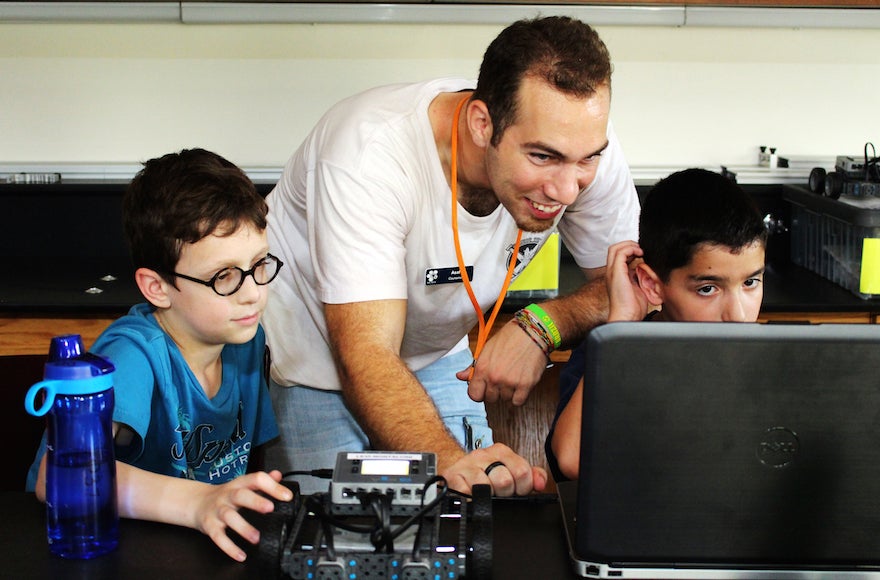
An Israeli working with campers at the Union for Reform Judaism’s 6 Points Sci-Tech Academy in New Jersey. (URJ 6 Points Sci-Tech Academy)
What if Jewish funders and educators were to adapt the Peloton model to Jewish learning, offering long-distance classes as well as opportunities for in-person connections and interactions? Such a combined model could provide opportunities for learning and community building, for families with young children or college-age students, building on already existing physical institutions such as JCCs.
The Peloton model is only one of dozens we explore in a new report, Smart Money: Recommendations for an Educational Technology and Digital Engagement Investment Strategy. Together with several colleagues, all who work in the world of secular education and entertainment media, we advised the Jim Joseph and William Davidson foundations on the potential of ed tech and digital engagement to help the foundations’ missions to create meaningful Jewish learning experiences — for people on the margins of Jewish life and those deeply immersed — and vibrant Jewish communities.
The report provides a detailed roadmap for Jewish funders as they consider investing in this area and look to leverage new technology and media in Jewish learning. Here are some key points:
Define your mission, a vision of what you want to accomplish.
- Jewish educators and researchers tell us that American Jews have decreasing connections to other Jews, Jewish communities, institutions and Jewish life. Technology provides a means to reach all Jews with Jewish wisdom related to values and character, and “life lessons” on topics such as patience, showing kindness to others and managing emotions. Jewish community building and social interaction are essential, technology cannot replace them — but it can be used to enhance them.
- Balance the need to engage Jews who are uninterested and uninvolved in Jewish life — providing them with authentic learning experiences — with deep educational experiences for those already interested and invested in Jewish learning.
Media is not an end. It is a means, a tool that can reflect reality, but with imagination, can also shape a new reality.
- Nurture young and established talent to experiment fearlessly.
- Insist on quality and dream big.
- Infuse a spirit of innovation into all efforts.
- Be willing to fail and learn from failures.
- Engage and educate through joy, humor and fun.
- Perform research that is formative, iterative and summative.
You can’t teach if you can’t reach. Be market knowledgeable and sensitive.
Create a solid distribution plan: all successful impact is dependent on reach and scale. In fact, it is as important as the quality of the content created.
With these guiding principles, we hope creative minds and funders will consider developing these types of Jewish ed tech opportunities:
A blended Jewish lifelong learning academy
The Khan Academy is an educational organization that produces short video lectures, practice exercises and tools for educators in math, science and the humanities. Envision a Khan Academy-like resource with personalized instruction on Jewish education topics taught through video, and supplemented by virtual and in-person mentoring and community meetings.
Narrative stories to engage audiences and link them to an eco-system of learning and community
Just as masterful storytellers have adapted Shakespearean classics for the stage, film and television, so should Jewish educators and ed tech producers adapt Jewish stories, whether biblical, historical or contemporary, for digital media distribution.
Innovative Israel education and partnerships
Advisers stress an urgent need to address the changing views toward Israel and Zionism. They explain that though it is difficult, ignoring these ideas will be detrimental and lead to a decline in especially young people’s positive feelings for Israel and, by extension, Judaism.
Create partnerships with Israeli tech and media companies, schools and universities for mentorship, exchange programs, virtual courses, joint storytelling and productions, and more.
A “J-Game Lab” that focuses on integrating curricular content into a game format
Experiment with virtual and augmented realities (VR and AR) to teach Jewish history, values and conflict resolution to give a sense of presence and empathy. VR and AR can be used for virtual visits to Israel, important Jewish sites and landmarks, or for virtual interactions with events in Jewish history. They can also be used to build empathy and an understanding of others through virtually walking in someone else’s shoes.
These could serve as stand-alone experiences or supplement others as introductions to or follow-ups for programs such as Birthright Israel, camp or Poland trips.
Empower and appeal to young people’s comfort with creating and using technology
Encourage young Jewish talent by building a pipeline for Jewish college students and graduates to professionally explore new technologies in a variety of ways — for example, by creating a Jewish Imagination Fellows Corps.
Launch community building projects around Jewish and general social activism
Create a Jewish Community Virtual Boomer Corps where retirees virtually mentor younger people and the younger people mentor the boomers, helping to improve their use of technology.
Invest in educator training
Support Jewish learning through training educators, specifically teachers who work in schools. If educators are not well trained, confident and competent in their use of a technology, the technology will not be used.
We are living in a complex world filled with information, accessibility and opportunities on the one hand, and with uncertainty, intolerance, fear and upheaval on the other. The need to empower children and adults to build a better future could not be more dramatic and urgent.
Our vision for this report is to stimulate funding to harness ed tech to transform Jewish learning and engage all Jews, whatever their beliefs and practice, with knowledge about Jewish values, legacy and teachings. How else will we transform this world for the better for our children and grandchildren?
(Dr. Lewis Bernstein had a 40-year career at Sesame Workshop, with roles ranging from executive vice president of the Education, Research and Outreach Division, to serving as the Emmy Award-winning executive producer of the domestic “Sesame Street” series. Shira Ackerman has worked in education, educational technology and media for over 15 years as a teacher, a director of educational technology at a Jewish day school, and at Gonoodle, Scholastic, Amplify and Barnesandnoble.com. They both served as researchers for Smart Money: Recommendations for an Educational Technology and Digital Engagement Investment Strategy.)
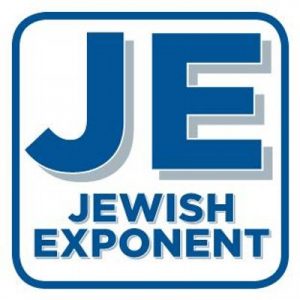
 Jewish students across the country mobilized to create affordable solutions to improve lives.
Jewish students across the country mobilized to create affordable solutions to improve lives.
 [This article is the third in a
[This article is the third in a 
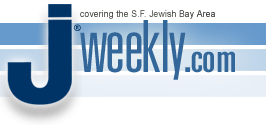 The Foundation for Jewish Camp has added URJ 6 Points Sci-Tech Academy West to its Specialty Camp Incubator III cohort.
The Foundation for Jewish Camp has added URJ 6 Points Sci-Tech Academy West to its Specialty Camp Incubator III cohort.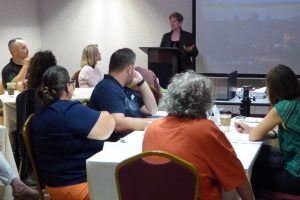
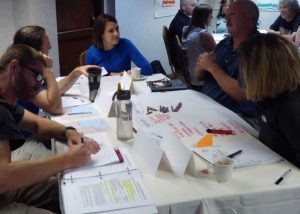
 The Louisville Jewish Community Center has had a garden for years, but never the staff to make the most of it. For Michael Fraade, a member of the first cohort of Hazon’s JOFEE Fellowship who is spending the year working on the JCC’s environmental programming, that garden has the potential to change the ways in which members of the community understand the rich relationship between the earth and Judaism.
The Louisville Jewish Community Center has had a garden for years, but never the staff to make the most of it. For Michael Fraade, a member of the first cohort of Hazon’s JOFEE Fellowship who is spending the year working on the JCC’s environmental programming, that garden has the potential to change the ways in which members of the community understand the rich relationship between the earth and Judaism.
 “What are we hearing from families about choosing Jewish early childhood education?” “What are common challenges and opportunities in congregational education?” “How do macro trends impact Jewish learning/life programming and choices?”
“What are we hearing from families about choosing Jewish early childhood education?” “What are common challenges and opportunities in congregational education?” “How do macro trends impact Jewish learning/life programming and choices?”